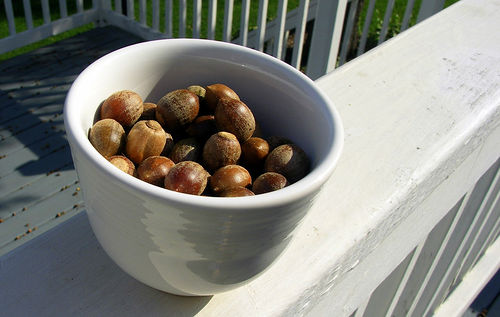Paleo diet: Disproving the narrative

As someone who follows a Paleo diet (lean meat, eggs, fruit, vegetables, and nuts; no grains or dairy, no processed foods) but refuses to believe the narrative behind it, I love to see a good article debunking the theory that Paleolithic people had the perfect diet.
While it's true that people's life expectancy during the Paleolithic era was outstanding (65-70 years), it wasn't all rosy: turns out that prior to the invention of agriculture, a lot of people ruined their teeth eating sweet, delicious acorns. Many people who espouse the Paleo diet claim that agriculture - with its starches and sugars - is what led to tooth decay. But some people's teeth were taking hits long before then, depending on their local diet.
Archaeologists have recently examined skeletons found in the Cave of Pigeons in Morocco, and found evidence for a staggering amount of tooth decay. The people living in Morocco 10,000 years ago had a real fondness for acorns, which are both starchy and sticky, thus a perfect recipe for tooth decay.
This finding does not disprove the Paleo diet itself, which is super healthy. However, it does disprove the notion that everyone's diet was perfect 10,000 years ago. Just like now, diets varied with local foods, and people often made bad decisions about their dietary choices.
Even in the Paleolithic era, the evidence is that people who were able to eat sugary treats gleefully did so. In the case of the ancient Moroccans, it seems that they usually ground up the acorns into a mash, formed them into patties, and roasted them over coals. The roasting helped caramelize the starches in the acorn meat, making it something akin to a Paleolithic Twinkie. Sound delicious? The Moroccans apparently thought so, resulting in "the earliest case of widespread dental caries ever seen."
The ultimate lesson being, be grateful for modern dental care!
Image courtesy Flickr/jacqueline-w

2 comments